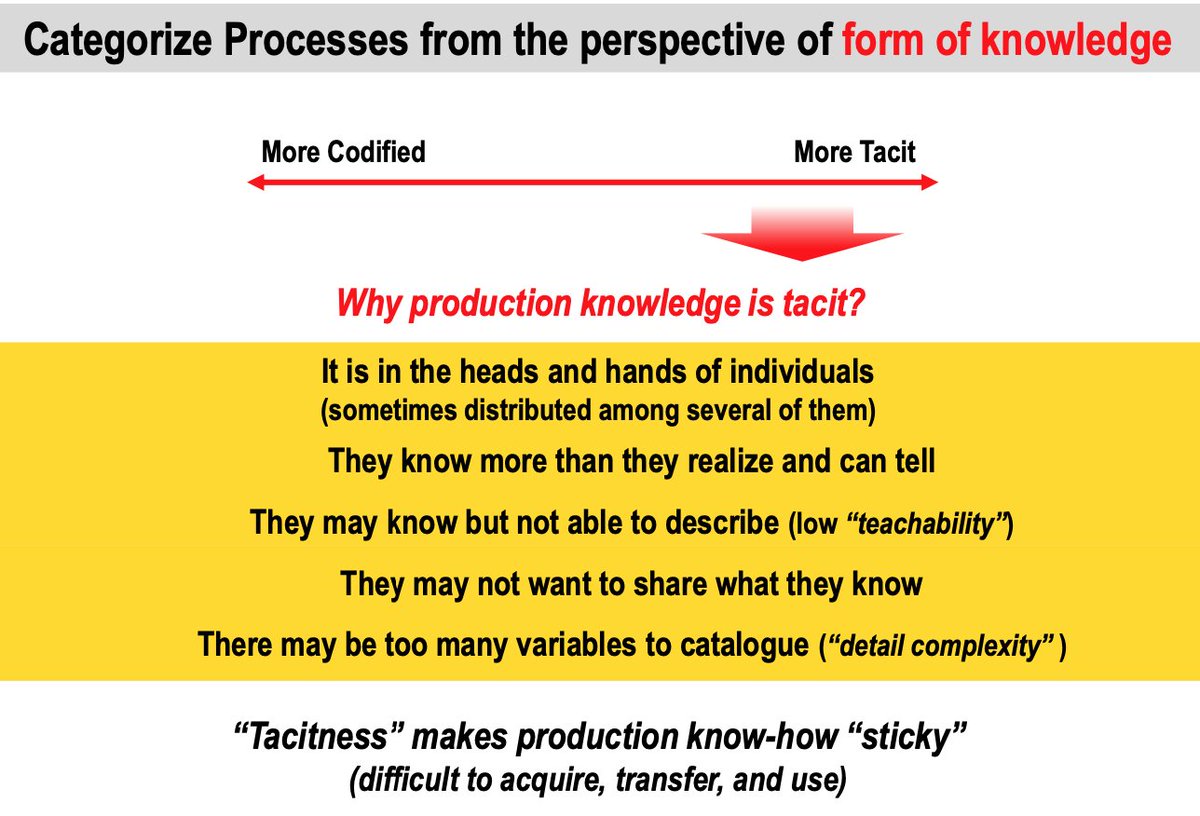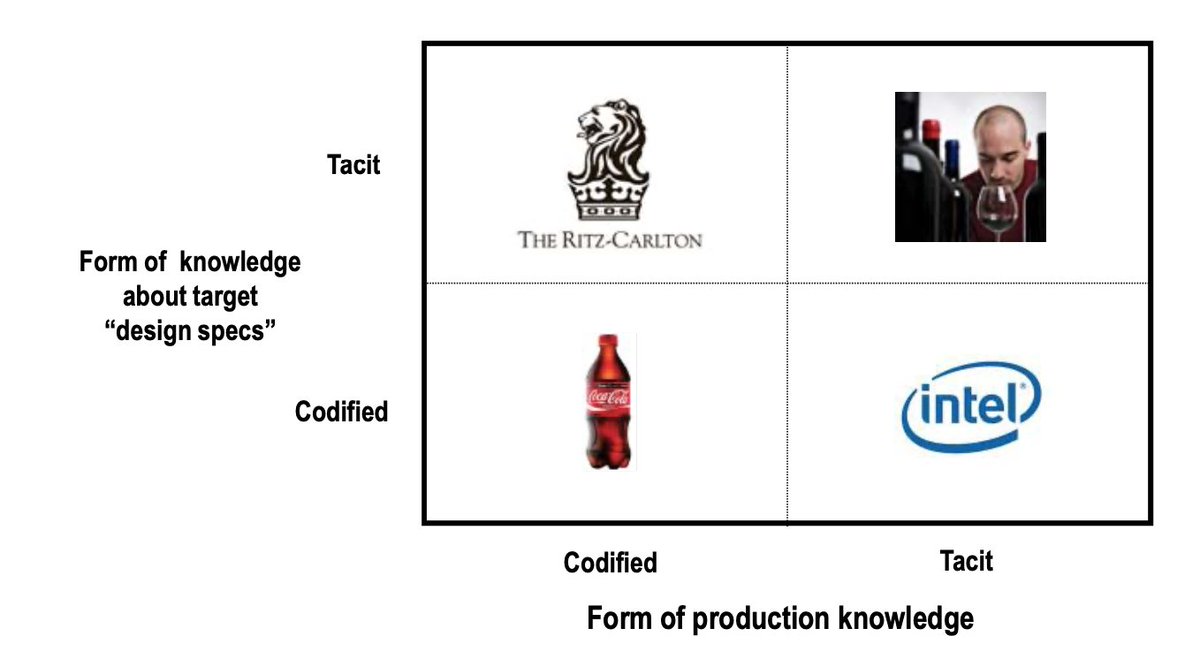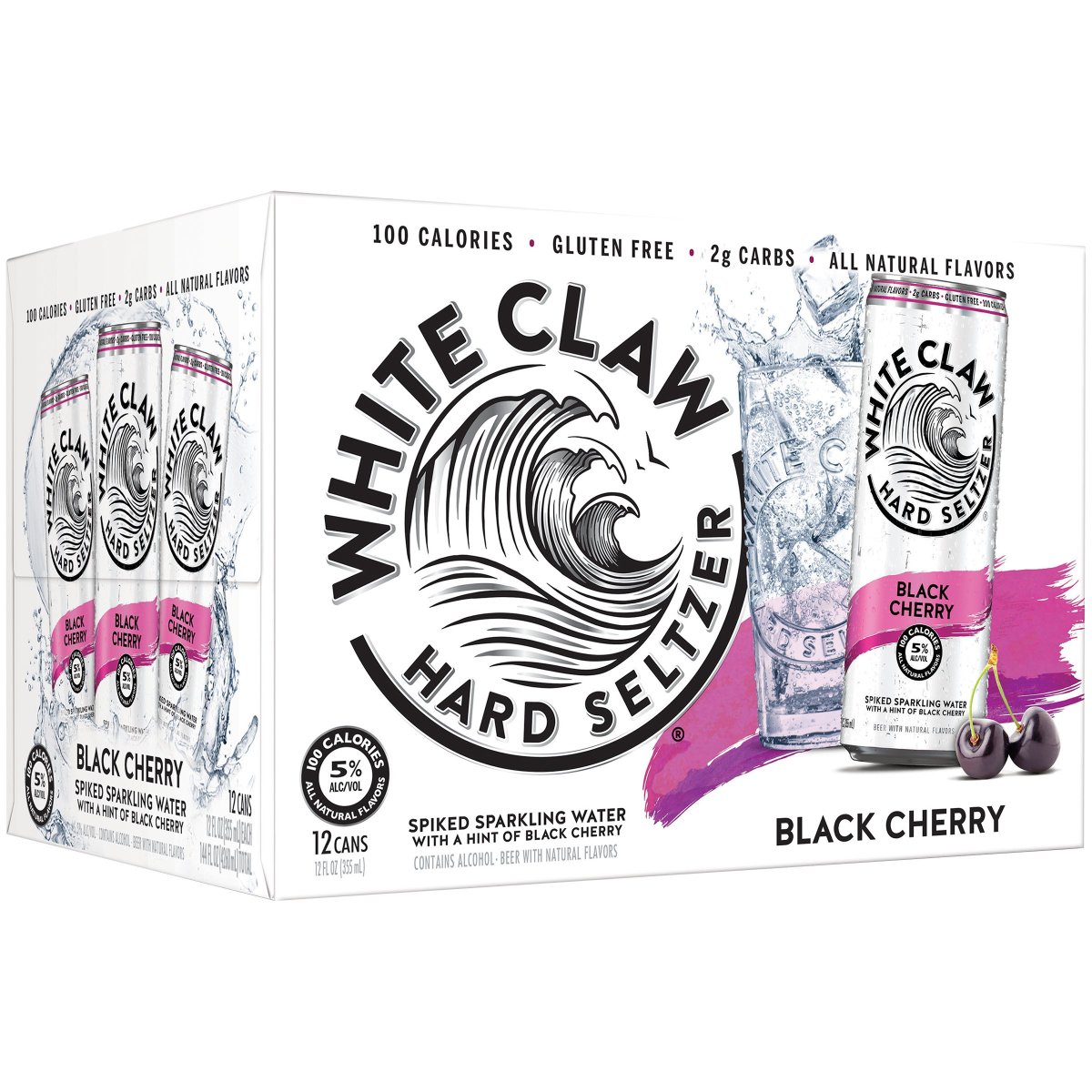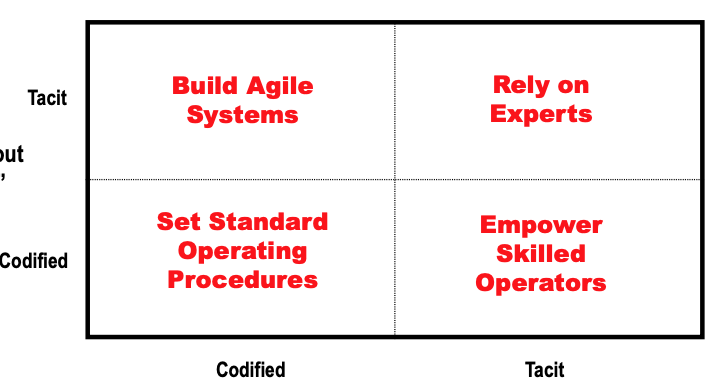Since I go off on my Intel is like Wine rant about once a year, I thought why not just do it on the first day and get it over with. So, A Thread...
During my MBA in the Operations class, we had a lecture on different types of knowledge that go into production processes. Put simply--Some processes are Art and some are Science. But more specifically, you can separate process knowledge into two categories: Tacit & Codified
You can further categorize both the Producers knowledge of How to produce and Producer's knowledge of What the customer's want, thus resulting in the classic B-school 2x2.
Production for Coke is by formula and everybody knows exactly what a Coke taste like. For the Ritz-Carlton, knowing what makes a great experience for any particular customer is hard to know, but doing it (say placing chocolate covered strawberries in the room...is easy)
Production of microchips involves producing a wafer of microchips, but then TESTING those chips after to see the quality. You know what you want precisely, but there are too many variables at such a nanoscopic scale to control to know in advance what the output quality will be.
When it comes to wine, both producing wine AND IMPORTANTLY consuming wine are tacit, which is to say an ART. And I think this best represents Intelligence. In fact, if you go back to the categories of what makes knowledge tacit, it's almost an exact description of intel work.
In the heads of individuals? Often. Know more than realized & can tell? Check. Know, but not able to describe? Yep. Know more than willing to share? Definitely. Detail complexity? Of course. And this applies to BOTH producer & customer.
But here's the problem -- many of the supposed best practices of intelligence programs, often developed by the FVEY intel community, are understandably designed for a large, multi-agency bureaucracy, which is to say Standard Operating Procedures, not the best approach for Wine.
You end up trying to make Wine with a Coca-Cola approach. Say that the customer, if they knew and could explain, would really like a full-bodied, French Pinot Noir with currant notes; the Coca-cola like intel process ends up delivering a 12-pack of Black Cherry White Claw.
This is almost certainly unavoidable at the breadth & scale of the IC, save for a narrow exception, like the PDB. But I think this is something that govies making the transition to the private sector MUST KEEP IN MIND. Your old SOPs from the IC/DoD might do more harm than good.
If you are setting up a new private sector intel program. The wine-making approach to intel is, I'd argue the BEST approach, but it's expensive. You have to spend A LOT OF TIME over a LONG PERIOD with A FEW customers, iterating on the products to get where you need to be.
In any case, rather than reflexively carrying over the intelligence practices of a large bureaucracy that might not apply in your current situation, instead think about what your program is like -- High end hotel, Microchip producer, or Vineyard with a Sommelier. Then, strategy:
And, to summarize, PIRs are overrated and the advice to people setting up private sector intel programs that the first and most important thing is setting up PIRs that cover the entire scope of what your program might cover is counterproductive to producing tangible results.
Don't focus on gathering company-wide PIRs. They likely aren't explaining them well. You aren't understanding them well. And you can't answer most of them at first anyway. Instead, focus on 2-3 customers; be a sommelier to them. Soon, they'll tell others about your great wine.

 Read on Twitter
Read on Twitter





